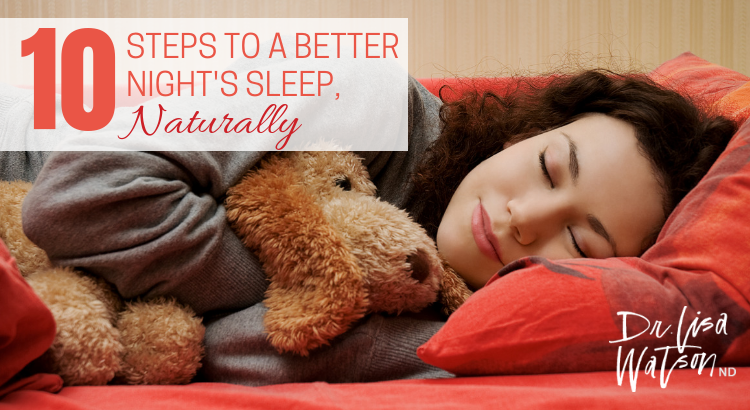
1. Get up and go to bed at the same time every day, even on weekends
Sleep is a habit. By consistently going to bed and getting up at the same time every day we condition our body to follow a regular pattern of sleep. This allows our body’s internal clock, our “circadian rhythm”, to remain balanced and effectively initiate and maintain sleep.
2. Make your bedroom quiet, dark and cool
Studies have shown that sleeping in a cooler room is most conductive to sleep. Our body temperature drops slightly during sleep and a cooler room helps the body temperature to drop more quickly and effectively. Eliminate all sources of light in your bedroom – turn digital alarm clocks to face the wall and get dark window coverings to eliminate outside light. Eliminating excess noise will minimize potential disruptions that might wake you from sleep.
 3. Bedrooms are for sleeping and sex, not for work or television
3. Bedrooms are for sleeping and sex, not for work or television
The bedroom should be kept for sleeping and not used for televisions, computers, video gaming systems, phone calls or other stimulating gadgets that may disrupt sleep. Go in the bedroom when it is time to sleep and leave the room when sleeping is done.
4. Avoid caffeine, alcohol and nicotine for 4-6 hours before bedtime
Caffeine is found in coffee, soda, green and black tea, energy drinks and chocolate. It is a stimulant and can negatively impact sleep even if ingested six hours before bed. And although an alcoholic “nightcap” might help you to initiate sleep it fragments the stages of sleep, decreases the quality of sleep and makes sleep more disrupted.
5. Don’t nap, or nap appropriately
The period of time that you are awake adds to something called “sleep drive”. The longer we stay awake, the more we want to go to sleep. By taking a nap we diminish this desire to sleep which may make it less likely that we will be able to easily sleep later.
However, some experts have suggested that napping at the appropriate time of day (between 1 and 4 pm, never between 5 and 8 pm) for an appropriate length of time (20 to 40 minutes) can improve overall sleep.
 6. Exercise daily, but avoid exercising 4 hours before bedtime
6. Exercise daily, but avoid exercising 4 hours before bedtime
Staying active is an excellent way to ensure a good night’s sleep. However, exercising too close to bedtime may cause difficulties in getting to sleep as your body will still be revved up.
7. Develop a sleep ritual before bedtime
Parents have been doing this for children for generations. Sleep rituals allow us to unwind and mentally prepare for going to sleep. These rituals should include quiet activities such as reading, drinking a calming cup of tea, listening to relaxing music, writing in a journal, or taking a warm bath.
8. If you are having trouble getting to sleep, don’t stay in bed or you will train yourself to have difficulties there
If you have difficulty initiating sleep don’t toss and turn in bed and try to force sleep to come (we’ve all tried this… and we all know it doesn’t work!). As this activity is repeated, night after night, a situation is set up where we associate our bed with the anxiety of not being able to sleep.
If you are unable to fall asleep within 15 minutes, go to another quiet place and lie down until you feel ready to sleep, then return to your bedroom to sleep. Do not watch television or use the computer during this time.
9. Avoid eating or drinking for a few hours before bedtime
Heartburn or having to urinate frequently can be very disruptive to a good night’s sleep. Avoid these issues by not eating or drinking for a few hours before bedtime.
10. Make sleep a priority. Don’t sacrifice sleep to do daytime activities
Respect your body’s need to sleep! Too often we allow our sleep time to be shortened when our daytime activities take longer than we expect. Opportunities to engage in pleasurable activities – watching television, visiting with friends, playing on the internet, and other activities – will quickly cut into sleep time if we allow them to. It is important to schedule your sleep time and keep to that schedule, no matter what may come up during the day.
Additional sleep resources:
BBC Documentary: Ten Things You Need to Know About Sleep
National Sleep Foundation – http://www.sleepfoundation.org/
Disclaimer:
The advice provided in this article is for informational purposes only. It is meant to augment and not replace consultation with a licensed health care provider. Consultation with a Naturopathic Doctor or other primary care provider is recommended for anyone suffering from a health problem.
















Great, I never knew this, thanks.
[…] – adults need a minimum of 7 hours of quality sleep each night to allow for rest and recovery. Consistently getting less than 7 hours of sleep can […]